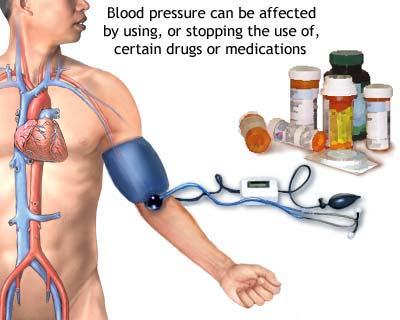Scientists discover 11 new genes affecting blood pressure
New research from Queen Mary University of London has discovered 11 new DNA sequence variants in genes influencing high blood pressure and heart disease.
Identifying the new genes contributes to our growing understanding of the biology of blood pressure and, researchers believe, will eventually influence the development of new treatments. More immediately the study highlights opportunities to investigate the use of existing drugs for cardiovascular diseases.
The large international study, published today in the American Journal of Human Genetics, examined the DNA of 87,736 individuals to discover genetic variants associated with blood pressure traits. Validation of these sequence variants was performed in a further 68,368 individuals. This analysis led to the identification of 11 new genes.
Worldwide, raised blood pressure is estimated to cause 7.5 million deaths, about 12.8% of the total of all deaths*. Genes and lifestyle factors (e.g., salt intake and obesity) are both known to be important risk factors.
Patricia Munroe, Professor of Molecular Medicine at Queen Mary University of London, comments:
“Discovering these new genetic variants provides vital insight into how the body regulates blood pressure. With further research, we are hopeful it could lead to the development of new treatments for treating blood pressure and heart disease – a leading cause of death worldwide.”
 Michael Barnes, Director of Bioinformatics, Barts and The London NIHR Cardiovascular Biomedical Research Unit, Queen Mary University of London, comments:
Michael Barnes, Director of Bioinformatics, Barts and The London NIHR Cardiovascular Biomedical Research Unit, Queen Mary University of London, comments:
“By highlighting several existing drugs that target proteins which influence blood pressure regulation, our study creates a very real opportunity to fast-track new therapies for hypertension into the clinic.”
Researchers from Queen Mary collaborated on the research with scientists from the Center for Applied Genomics at The Children’s Hospital of Philadelphia and the University Medical Center Utrecht, in the Netherlands.
###
For media information contact:
Charli Scouller
PR Manager (School of Medicine and Dentistry)
Queen Mary University of London
.(JavaScript must be enabled to view this email address)
Tel: 020 7882 7943
###
About Queen Mary University of London
Queen Mary University of London is among the UK’s leading research-intensive higher education institutions, with five campuses in the capital: Mile End, Whitechapel, Charterhouse Square, West Smithfield and Lincoln’s Inn Fields.
 A member of the Russell Group, Queen Mary is also one of the largest of the colleges of the University of London, with 17,800 students - 20 per cent of whom are from more than 150 countries.
A member of the Russell Group, Queen Mary is also one of the largest of the colleges of the University of London, with 17,800 students - 20 per cent of whom are from more than 150 countries.
Some 4,000 staff deliver world-class degrees and research across 21 departments, within three Faculties: Science and Engineering; Humanities and Social Sciences; and the School of Medicine and Dentistry.
Queen Mary has an annual turnover of £350m, research income worth £100m, and generates employment and output worth £700m to the UK economy each year.
Unique for London universities, Queen Mary has an integrated residential campus in Mile End - a 2,000-bed award-winning Student Village overlooking the scenic Regents Canal.
###
Charli Scouller
.(JavaScript must be enabled to view this email address)
44-770-982-5741
Queen Mary, University of London